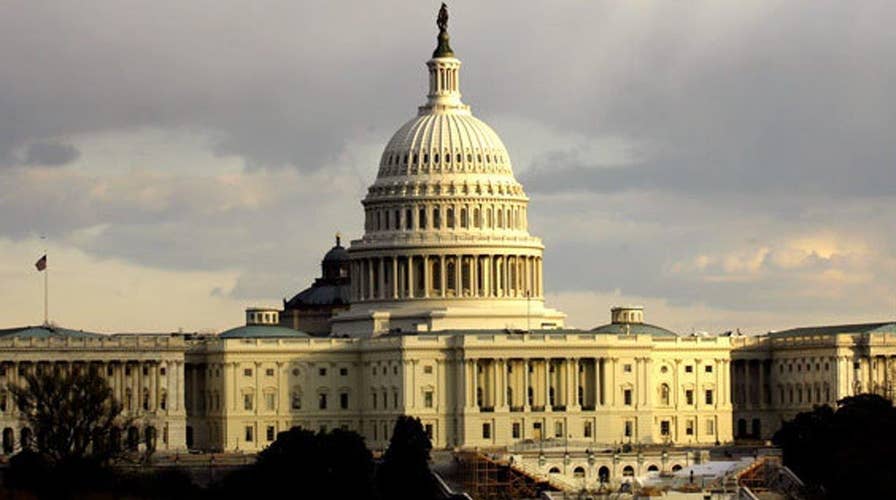Not a lot gets done in Washington in a presidential election year.
Couple that with a prodigious blizzard which buries the city alongside a fairly pedestrian agenda for January – to say nothing of the upcoming Iowa caucuses and New Hampshire primary. And things are more or less at a standstill on Capitol Hill.
To wit:
The Senate met all but for a few moments during the first week of January, not really pursuing much of anything until week two.
The second week of January featured President Obama’s State of the Union speech. The House voted to send Obama a bill to defund Planned Parenthood and repeal ObamaCare – even though lawmakers knew he would veto it. House and Senate Republicans then jumped buses for an issues retreat in Baltimore.
Then it was the House’s turn to take off last week. The Senate had a few procedural votes and an important hearing on the nomination of Eric Fanning to lead the Army. But then the Senate skedaddled just in time for the storm. As the first the flakes fell, House Majority Leader Kevin McCarthy, R-Calif., announced that the House of Representatives wouldn’t hold any votes on Monday. The storm would make it too hard for lawmakers to jet back into town. Airline schedules would be topsy-turvy and it would take a few days to recover.
Over the weekend, McCarthy then postponed all votes for this week. It was supposed to be a short week anyway. This time, House Democrats were trekking to Baltimore for their annual retreat and to hear from Obama and Vice President Biden, among others.
The House had planned to revote a bill to dump sanctions on Iran this week. The House originally approved the measure two weeks ago. But House Speaker Paul Ryan, R-Wis., is enforcing time discipline in the House -- 137 lawmakers were late and missed the vote, so House GOP leadership agreed to nullify the result and vote again. But with weather snarling all modes of traffic in and out of Washington, a lot more than 137 members would have missed the vote early this week. The House was also scheduled to vote to override Obama’s veto of the ObamaCare repeal/Planned Parenthood defund legislation this week. But that’s off the books now, too.
The Senate punted the confirmation vote of John Vazquez to serve on the federal bench in New Jersey from Tuesday night until Wednesday night. On Thursday, the Senate plans work on a bill to modernize energy programs.
The Iowa caucuses are Monday. The New Hampshire primary hits Feb. 9
Think anyone will pay attention to Capitol Hill during that time?
The House intends to be in session all next week and the week following. But the House is out the week of Feb. 14.
Keep in mind that the Republican leadership plans for the House to be out of session from July 16 through Sept. 6 to accommodate the Democratic and Republican conventions. The House also won’t meet from Oct. 1 through Nov. 14. And then it takes a week for Thanksgiving. So just five weeks of session between July 15 and Nov. 29 – when the House convenes after the Thanksgiving recess.
Now to be fair, days in session is not a good rubric to measure the productivity of Congress. Nor is the number of bills the House and Senate may pass. Lawmakers work constantly, attending to issues in their districts, talking to constituents and working the phones. It can be a 24/7 job. On multiple occasions, former House Speaker John Boehner, R-Ohio, said people should judge Congress “on how many laws we repeal” versus “how many new laws” lawmakers pass. This was a take on a saying by President Calvin Coolidge: “It is much more important to kill bad bills than to pass good ones.”
It’s kind of like statistics in baseball. Does a guy crack 30 home runs but none in the clutch? Or how valuable is a guy who hits .300 with runners in scoring position? What’s his WAR?
Like Major League Baseball, there are statistics inside the statistics when it comes to Congress. We haven’t even addressed the important work Congress does with oversight, investigations and hearings. As the expression goes, not everything that counts can be counted and vice-versa. But, you can imagine the metric that the general public uses to gauge congressional success or failure. There’s a skepticism when they see a schedule like the one published for this calendar year.
Keep in mind, this week’s schedule alterations were out of necessity. The word Congress means “coming together.” If half the East Coast is paralyzed by a record-setting blizzard with anywhere from a foot to three feet of snow on the ground, people aren’t going to “come together.”
Cue the Beatles.
The headlines popped this fall when Ryan announced his candidacy for speaker. He said Congress needed an “ambitious” agenda. Yet, one might question how lawmakers can tackle a broad agenda with such little time on the calendar.
Of course, some would prefer Congress not meet much at all. Gideon John Tucker, a mid-19th Century attorney, once worked on a case involving a will -- and famously declared “no man’s life, liberty or property are safe while the legislature is in session.”
Congress hasn’t been around much to start 2016. And it won’t be around much the rest of the year. And those who feel the same as Gideon John Tucker think that’s a good thing.
Capitol Attitude is a weekly column written by members of the Fox News Capitol Hill team. Their articles take you inside the halls of Congress, and cover the spectrum of policy issues being introduced, debated and voted on there.





